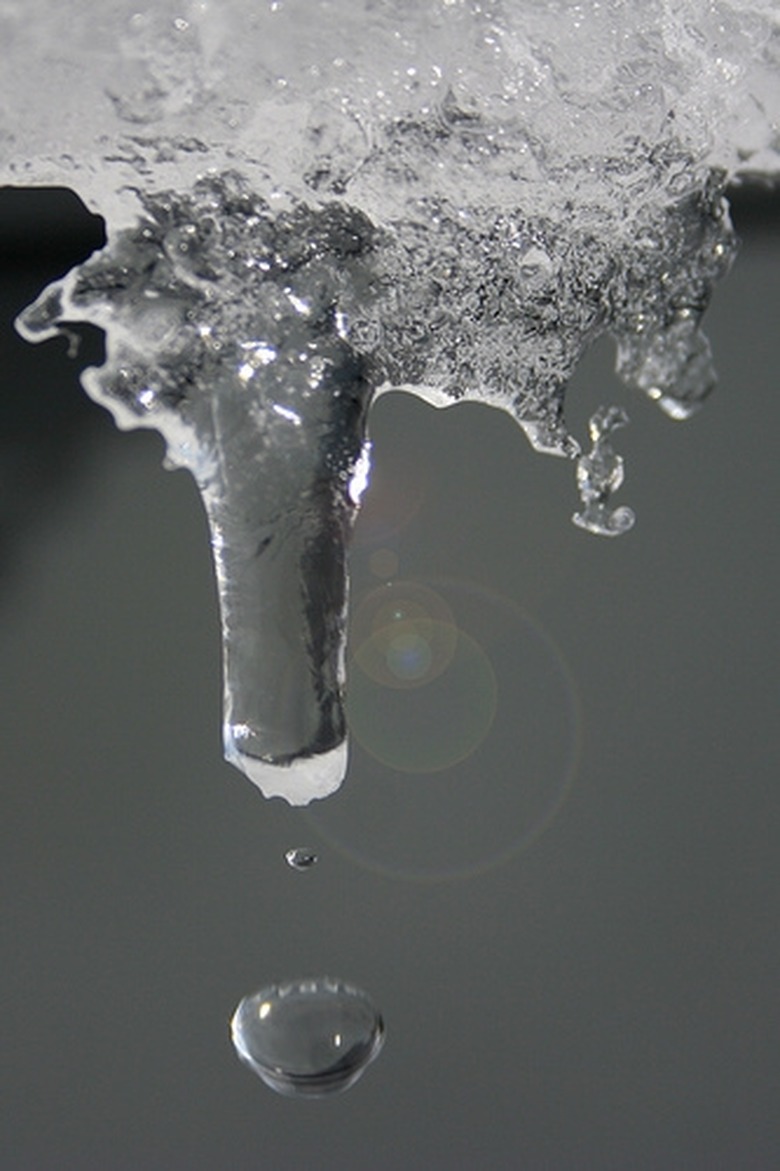How Does Calcium Chloride Melt Ice?
Colligative Properties
Water is a solvent, meaning that it is a liquid capable of dissolving solids into solution. More specifically, water is a polar solvent, best at dissolving salts and other charged molecules. When a solvent, polar or otherwise, dissolves a significant enough amount of solids, the increase of molecules contained within the solution starts to have an impact on that solvent's physical properties. These affected properties are known collectively as the "colligative properties" of the solvent. Colligative properties hinge only on the total number of individual particles. Atomic and molecular size have no bearing on the observed effect.
For water, a well-known colligative property is a decrease in freezing point temperature. As such, in sub-freezing temperatures, people will throw salt (especially calcium chloride) onto the ground around entrancing to prevent or remove ice. The salt is dissolving into calcium and chloride ions in the water, allowing the latter to remain a liquid at lower and lower temperatures.
Why Calcium Chloride?
Why Calcium Chloride?
Most non-toxic alkali and alkali-metal salts are composed of two ions–a positively-charged metal ion and a negatively-charged halide ion. For example, a molecule of table salt (NaCl) dissolves into one sodium ion and one chloride ion. Calcium chloride, however, consists of one calcium ion and two chloride ions. When calcium chloride dissolves, three ions are created–50 percent more than table salt. More particles in solution means a greater effect on water's colligative properties. As such, calcium chloride will keep water from freezing into dangerous ice across a greater range of temperatures.
Heat Generation
Heat Generation
In addition to preventing water from freezing at low temperatures, calcium chloride helps melt ice. When combined with water, dry calcium chloride exothermically dissolves. This means that each salt molecule releases broken ionic bond energy into surrounding ice molecules in the form of thermal energy. This "heat" energy increases the surrounding temperature enough to melt ice, which creates more water for dry salt to exothermically dissolve in.
Cite This Article
MLA
Pasquesi, Andy. "How Does Calcium Chloride Melt Ice?" sciencing.com, https://www.sciencing.com/calcium-chloride-melt-ice-5398442/. 24 April 2017.
APA
Pasquesi, Andy. (2017, April 24). How Does Calcium Chloride Melt Ice?. sciencing.com. Retrieved from https://www.sciencing.com/calcium-chloride-melt-ice-5398442/
Chicago
Pasquesi, Andy. How Does Calcium Chloride Melt Ice? last modified March 24, 2022. https://www.sciencing.com/calcium-chloride-melt-ice-5398442/
